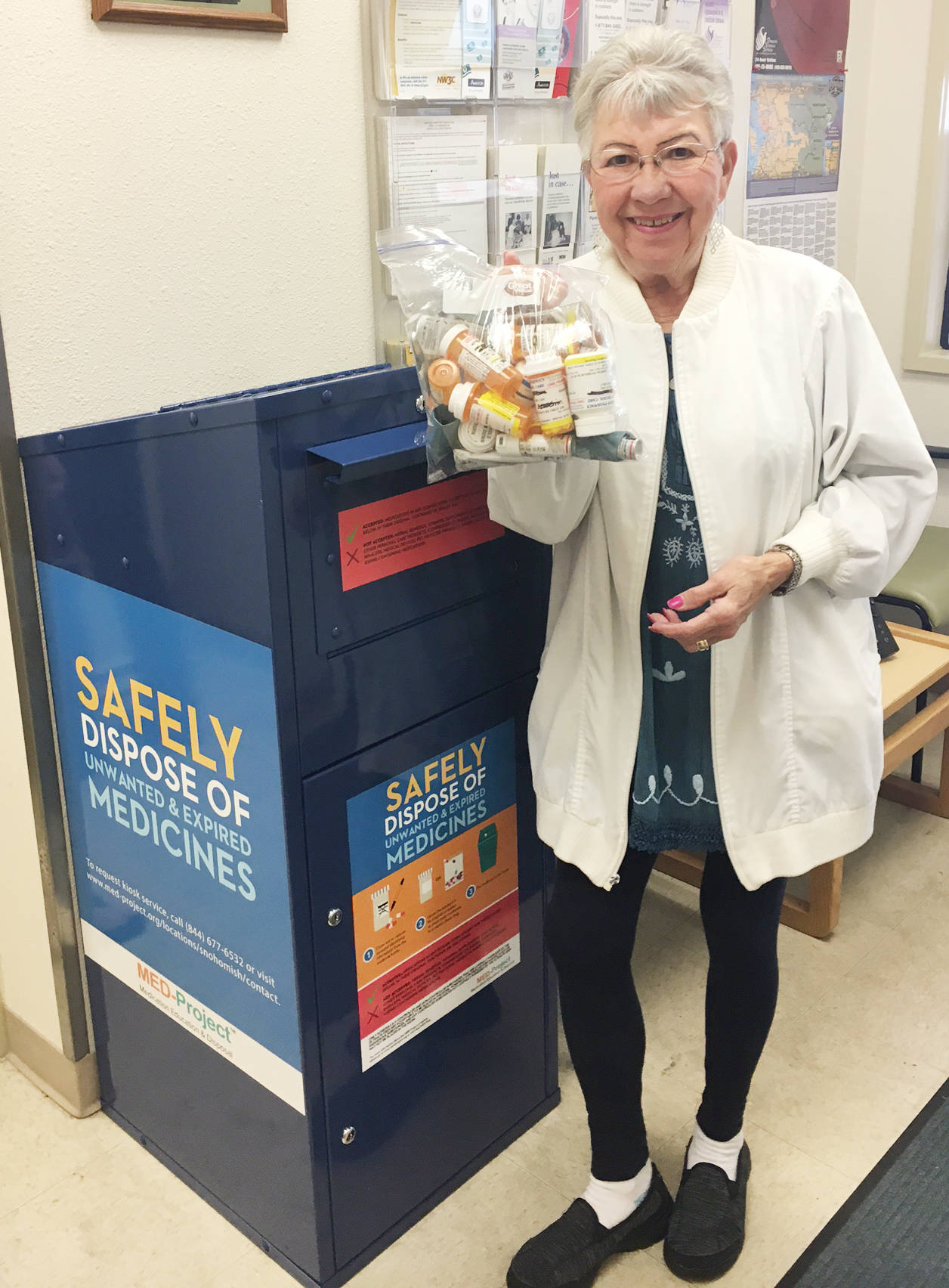What’s in your medicine cabinet? (Or kitchen drawer or first-aid kit?)
If you’re like many Snohomish County residents, chances are you have at least one or two unfinished prescriptions. But with consequences ranging from health risks to environmental issues, that can be a problem.
That’s why community leaders across Snohomish County advocate for secure medicine return programs. MED-Project now operates the program locally, building on previous efforts started by the Snohomish Health District, Sheriff’s Office, and the Regional Drug and Gang Task Force in 2011. With locations in many pharmacies and police stations across the county, residents can safely dispose of unused medications at no cost.
In fact, in just four months between Aug. 1 and Dec. 1, 2017, an amazing 4,300 pounds of medications were collected at MED-Project locations!
“This has made it much easier for people and it’s definitely working but we want to get more information out there,” explains Heather Thomas, spokeswoman for the Snohomish Health District.
Here’s why:
The Health Risks: Keeping unused medications around can increase the likelihood of improper use and drug addiction in family members or others who might have access. After all, there’s a reason that “Know Your Meds, Lock Your Meds” is No. 1 on the 10 Things to Know About Opioids Overdose Prevention Resource Guide. (Consider that more than 4 in 10 teens who misused a prescription drug took it from their parent’s medicine cabinet.)
The Environmental risks: Recognizing pollution risks presented by drugs found in leachate – the water that passes through landfills – the solid waste code in Snohomish County does not allow the disposal of medications in household trash. Wastewater treatment facilities are also not able to fully remove pharmaceuticals during processing, and septic systems have been shown to release pharmaceuticals into nearby surface and ground waters. This is why flushing prescriptions down the drain or toilet is also harmful to the water ecosystems, wildlife and drinking water supplies.
The solution: Take Back Your Meds
The solution to the medication challenge for the Snohomish Health District – and one since followed by many other jurisdictions – was to put the responsibility back in the hands of the pharmaceutical companies.
In 2016 the District’s Board of Health became the second in Washington State to require manufacturers to pay for pharmaceutical collection and safe disposal, just like what happens with batteries, paint and other potentially hazardous items.
Operated by MED-Project and overseen by the Snohomish Health District, the initiative has seen secure drop box facilities increase to 33 county-wide from just 17, making safe disposal of your unused medications quick and easy.
Those who are home-bound and unable to get out to a MED-Project location themselves can call 1-844-MED-PROJECT to have a secure mailer send to them, Thomas notes.
Earlier this year, the legislature passed House Bill 1047, becoming the first in the nation to require a statewide secure medicine return program.
What’s not accepted at the MED-Project drop-off boxes?
- Herbal remedies, vitamins and supplements
- Cosmetics and other personal care products
- Compressed cylinders, aerosols and inhalers
- Medical devices, pet products, sharps, illicit drugs and iodine-containing medications.
To learn more, visit snohomishoverdoseprevention.com.

























